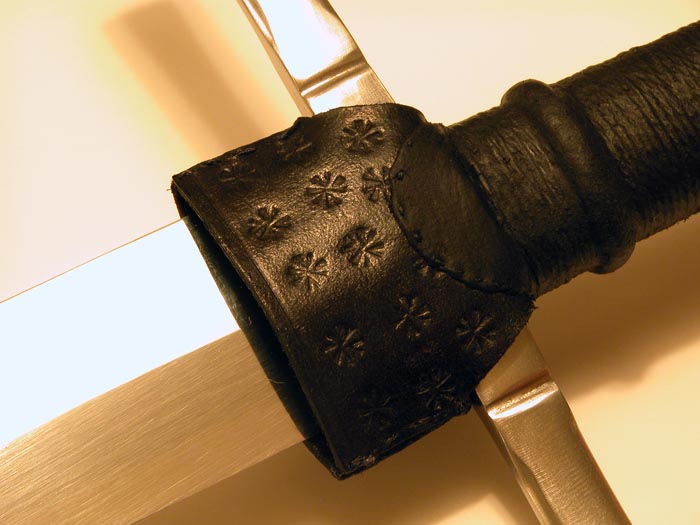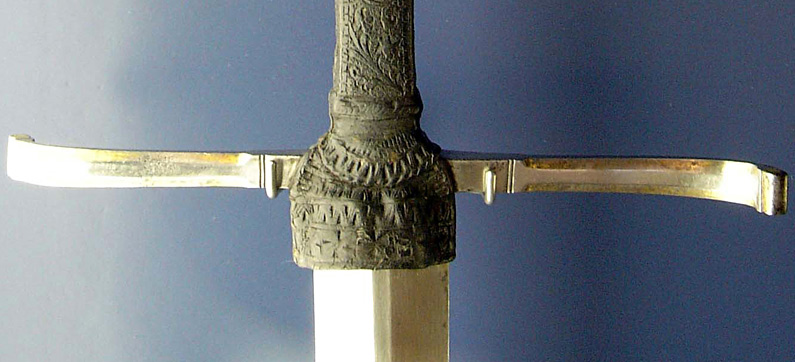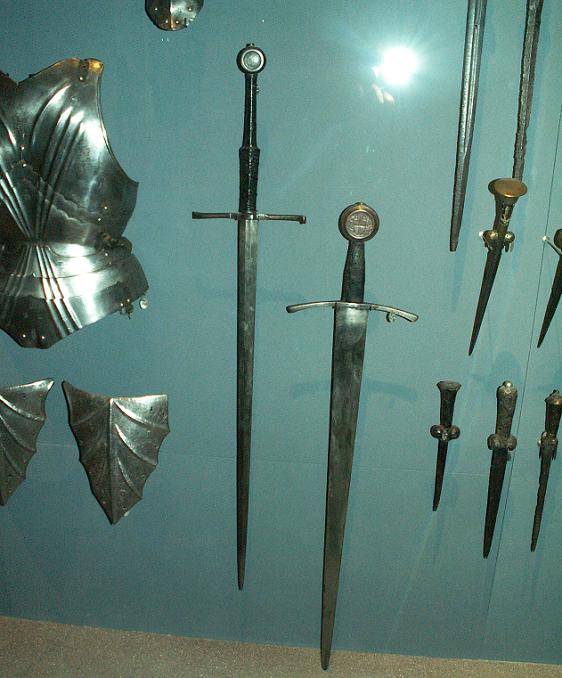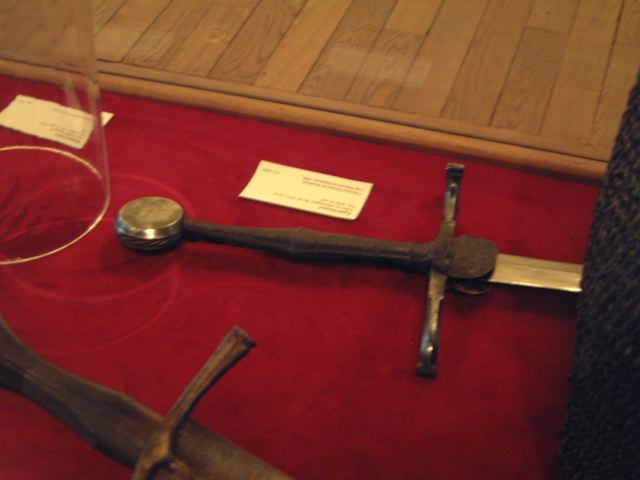Most of the techniques for this project are well-covered in other posts and in my Workbench feature articles, so I’ll just post a brief overview here.
I didn’t know anything about Oakeshott Type XVIII swords when I volunteered to write this site’s “Spotlight” feature of the type several years ago ( http://www.myArmoury.com/feature_spotxviii.html ). I’ve been a great admirer of the type since then and the XVIIIb subtype has occupied a special place in my imagination. Oakeshott reckoned that the famous XVIIIb in the Bayerisches Nationalmuseum might be the finest existing medieval sword, and that sounds about right to me ( http://www.myArmoury.com/talk/viewtopic.php?t...ayerisches ).
Price has been the primary obstacle to ownership. Albion’s Munich is beautiful, of course, but far, far out of my price range and lacking the integral leather chappe that seems to have been standard equipment, historically. A&A’s Dürer (less costly but still out reach) lacks the distinctive grip that, to me, is so much a part of the XVIIIb’s appeal.
When a battered and bruised Dürer appeared in the Marketplace earlier this summer I was finally able to scratch the XVIIIb itch. This was a perfect scenario for me—a fine sword sold cheap because it’s led a hard life and needs minor repair. I had to destroy the original grip in order to straighten the bent tang and that gave me a guilt-free excuse to create a more complex grip inspired by historical artwork and various surviving examples.
Special thanks go to Mathieu Harlaut for responding to my request for details of chappe construction. He turned up some extremely helpful archaeological drawings of surviving chappes and described his own experience in recreating one of those (details here: http://www.myArmoury.com/talk/viewtopic.php?t...light=rain ). I used my finished grip and cross, along with photos of originals, as my references for construction and consciously avoided accurate measurement, although I did make a simple foam test piece just to make sure I was headed in the right direction.
Some historical chappe decoration —even that of the very fine Bayerisches sword--looks crude to modern eyes. To approximate that look I tried to avoid overthinking and overworking mine. I absorbed what I could from contemporary depictions and surviving examples, then did the work freehand and freestyle. I quickly filed a “good enough” star pattern in the end of a hardwood dowel, lay the leather on my anvil and tapped the dowel with a hammer wherever the mood struck, without any measuring or planning. The subtle and handmade look is exactly what I was hoping to achieve. I would have done it slightly differently if I had planned it carefully--staggering the stars instead of stacking them atop each other, for example. But I’m very pleased with the effect. The star motif is inspired by the background design of a German religious painting of ca. 1500.
Everything is tightly, but not permanently, assembled because I intend to make an historically appropriate scabbard and might want to work with the bare blade for part of that process.
So, for almost $800 less than a new Munich and $250 less than a new Dürer, I finally have an XVIIIb of my own, and with a grip treatment unavailable as a standard option for either. I know my work here doesn’t compare to what Albion and A&A can do but I think it suits a relatively plain sword made for the field. Anyway, I’m happy!




